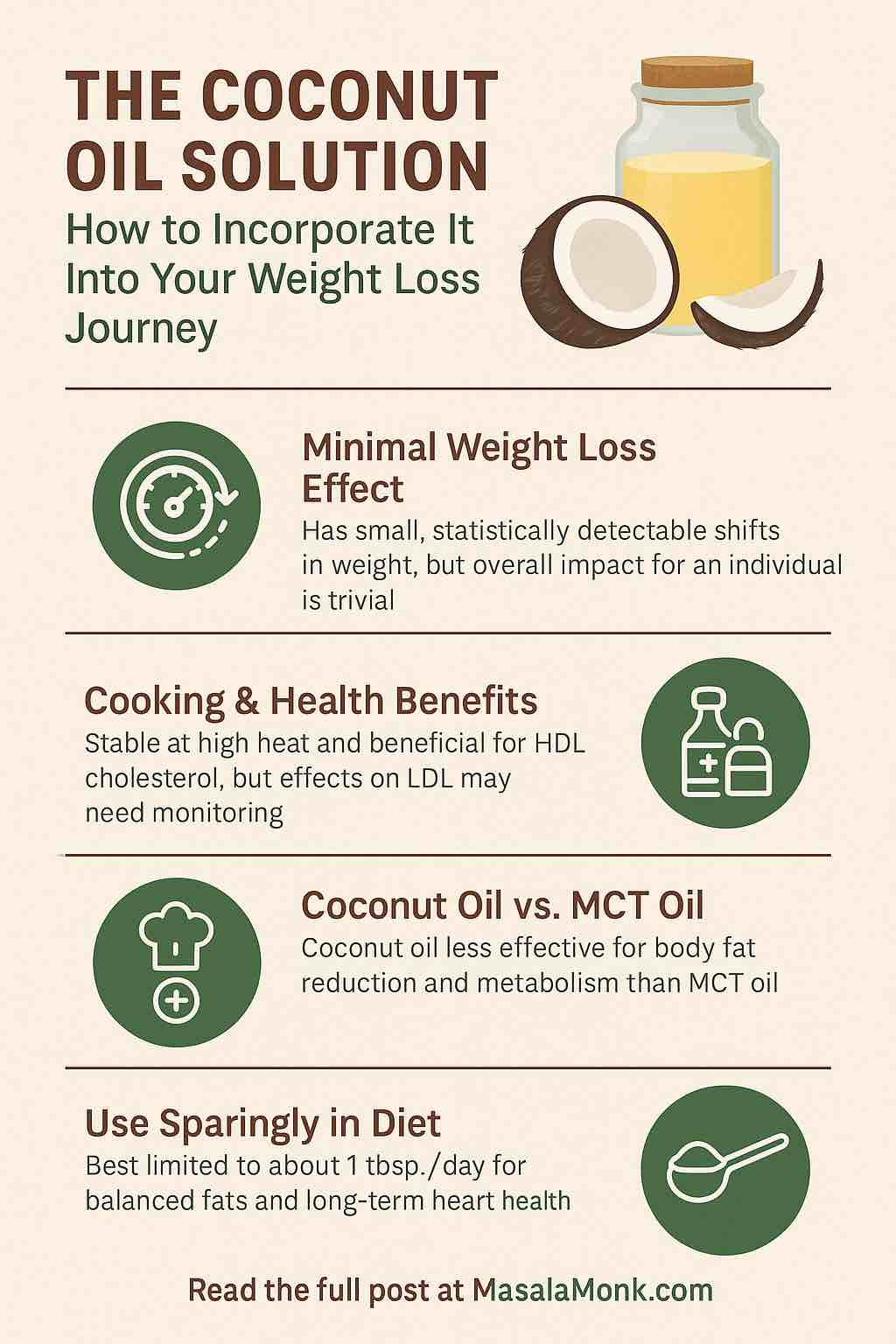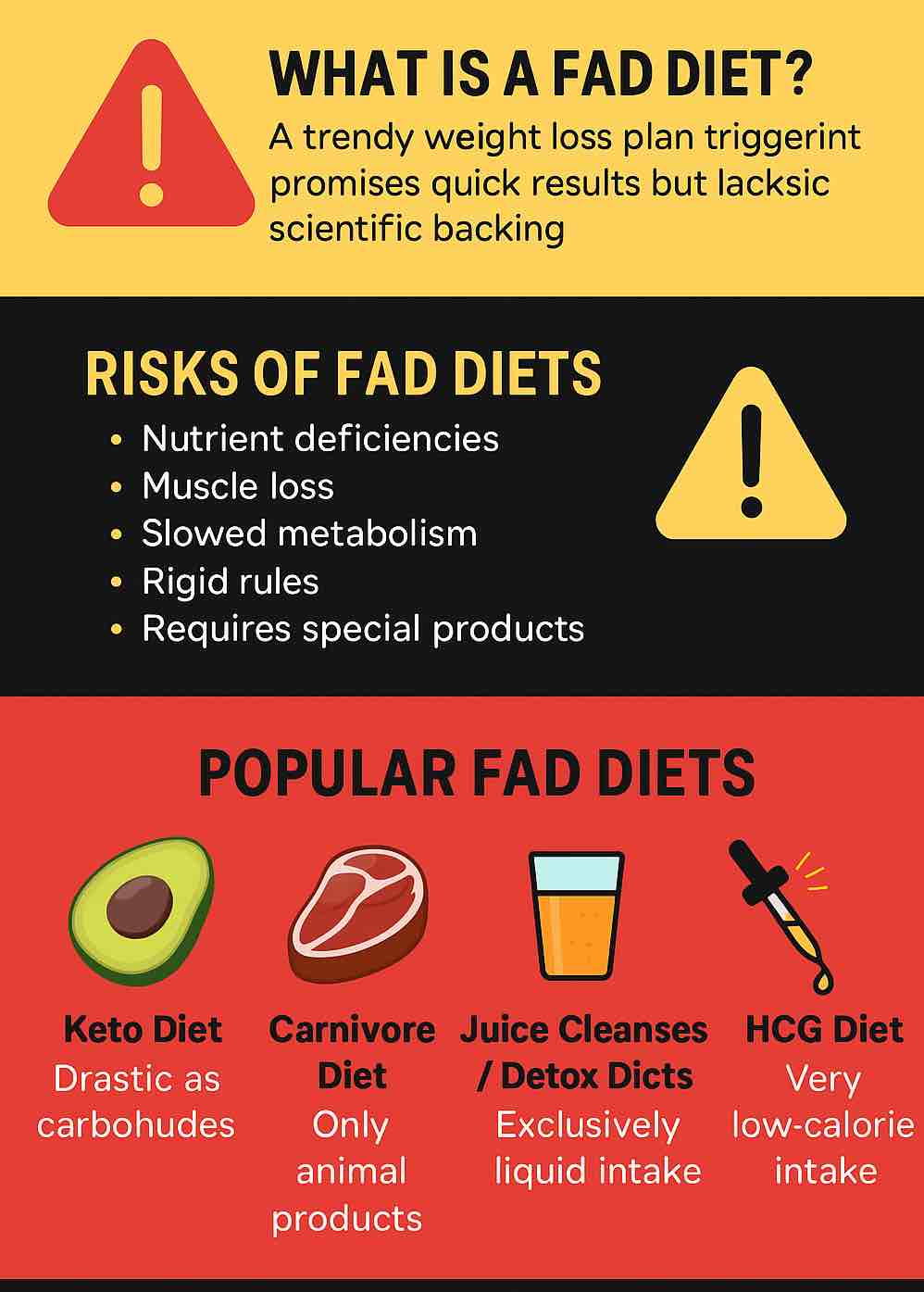
When it comes to superfoods, few have stirred as much debate as coconut oil. Touted by some as a miracle fat-burning elixir and dismissed by others as an overrated saturated fat, coconut oil often leaves health-conscious individuals wondering: should it have a place in my weight loss journey?
The answer lies in understanding what coconut oil truly is, what the science says about it, and—most importantly—how to incorporate it wisely and effectively into a sustainable lifestyle. Let’s cut through the hype and break it all down in a practical, engaging way.
What Makes Coconut Oil Unique?
Coconut oil is predominantly composed of saturated fats, but not all saturated fats are created equal. The primary component in coconut oil is lauric acid, a type of medium-chain triglyceride (MCT). While true MCT oils (like those containing caprylic and capric acids) are rapidly metabolized for energy, lauric acid sits in a gray area—offering some metabolic benefits, but not as potent as pure MCT oil.
That said, coconut oil does have unique properties:
- Stable at high heat — Great for cooking.
- Rich in antimicrobial compounds — Supports gut and oral health.
- Naturally satiating — Can reduce overall calorie intake.
The Science: Can Coconut Oil Really Help With Weight Loss?
What Research Shows
Recent meta-analyses and clinical trials provide a mixed but nuanced picture:
- A 2025 meta-analysis found small reductions in weight (~0.75 kg) and BMI (~0.28 kg/m²) over 4-12 weeks.
- Another study in overweight adults showed that using 20 mL of coconut oil daily as part of a calorie-controlled diet helped reduce body fat and improved insulin sensitivity.
- Conversely, some trials showed no significant change in body composition, despite increased HDL (“good”) cholesterol levels.
The Verdict?
Coconut oil is not a miracle fat burner. However, it may support weight loss indirectly by:
- Promoting satiety and reducing snacking.
- Slightly increasing metabolic rate compared to long-chain fats.
- Enhancing insulin sensitivity in some individuals.
Practical Ways to Incorporate Coconut Oil Into Your Diet
Here’s how to make coconut oil work for you, not against you:
1. Start Small
Introduce coconut oil gradually. Begin with 1 teaspoon per day and work up to a maximum of 1 tablespoon (15 mL). This helps your digestive system adjust and keeps your calorie intake in check.
2. Use It in Cooking
Coconut oil has a high smoke point, making it ideal for:
- Stir-frying vegetables.
- Cooking eggs.
- Baking healthier treats.
3. Morning Coffee Booster
Blend 1 teaspoon into your morning coffee for a satisfying, creamy beverage. Avoid overdoing it (unlike extreme “bulletproof” trends).
4. Swap It for Less Healthy Fats
Replace butter or palm oil with coconut oil occasionally. This can improve your fat quality without increasing your calorie load.
5. Oil Pulling (Optional but Beneficial)
Swish 1 tablespoon of coconut oil in your mouth for 10–15 minutes. While not directly linked to weight loss, it supports oral health, which plays a surprising role in digestion and appetite regulation.
When to Choose MCT Oil Instead
If your primary goal is fat loss and metabolic enhancement, you might consider supplementing with pure MCT oil. Compared to coconut oil, MCT oil is more efficiently converted into energy and has a greater effect on satiety and calorie burn. But be cautious:
- It’s more concentrated and can cause digestive upset if taken in excess.
- It lacks the culinary and skin-care versatility of coconut oil.
The Bottom Line: Sustainable Weight Loss Wins
Coconut oil can be a helpful ally—but not the hero—of your weight loss journey. Use it strategically:
- As a flavorful, functional fat in cooking.
- In moderation, within a calorie-conscious diet.
- Alongside other whole foods, exercise, sleep, and stress management.
True transformation comes not from a single food or supplement but from consistent, healthy habits. Coconut oil fits best when it complements—not replaces—a holistic approach to well-being.
So next time you reach for your pan or your morning coffee, consider adding a little coconut oil. It won’t work magic, but it might just help you feel a bit fuller, metabolize a bit better, and cook a lot tastier.
✅ Frequently Asked Questions (FAQs)
1. How much coconut oil should I use daily for weight loss?
Start with 1 teaspoon per day and gradually work up to no more than 1 tablespoon (15 mL) daily. Excess can lead to calorie overload or digestive issues.
2. Can coconut oil help me lose belly fat specifically?
No food can target belly fat directly. Coconut oil may support overall fat loss slightly when paired with a calorie-controlled diet, but spot reduction is a myth.
3. Is coconut oil better than olive oil for weight loss?
Not necessarily. Olive oil contains heart-healthy unsaturated fats. Coconut oil is more stable at high heat and slightly more satiating, but both should be used mindfully and in moderation.
4. What’s the difference between coconut oil and MCT oil?
MCT oil contains shorter-chain fats (C6–C10) that are metabolized faster, offering stronger fat-burning and satiety effects. Coconut oil contains mostly lauric acid (C12), which behaves more like long-chain fats.
5. Can I cook everything with coconut oil?
Coconut oil is great for sautéing, frying, and baking thanks to its high smoke point, but it has a distinct flavor. It may not pair well with all cuisines.
6. Will coconut oil raise my cholesterol?
It can raise both HDL (good) and LDL (bad) cholesterol. If you have cardiovascular concerns, consult your doctor and monitor lipid levels during long-term use.
7. Is virgin coconut oil better than refined?
Yes. Virgin (unrefined) coconut oil retains more antioxidants and beneficial compounds, while refined is more neutral in flavor but more processed.
8. Can I use coconut oil in coffee every morning?
Yes, 1 teaspoon blended into coffee can help with satiety. Avoid going overboard—high-fat “bulletproof” coffee can add unnecessary calories if not balanced.
9. Is oil pulling with coconut oil beneficial for weight loss?
Not directly. However, better oral health may support appetite regulation and digestion, contributing to healthier eating habits overall.
10. Should I take coconut oil supplements instead of using it in food?
It’s best used as a food ingredient, not as a pill. Cooking with it makes it easier to control dosage and enjoy added culinary benefits.










